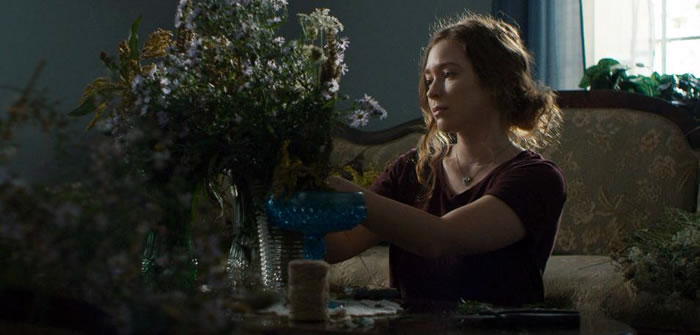The 2018 Toronto International Film Festival is just around the corner with hundreds of features, short films and documentaries from around the world. TIFF also has virtual reality experiences, conferences, presentations by legendary directors and even a few parties beginning Sept. 6 and running through Sept. 16.
This “festival of festivals” began in 1976 and has grown to be one of the premiere festivals in the world as both seasoned filmmakers and up-and-comers walk the red carpet and wait for the audience’s reactions to their creations.
Thom Firzgerald’s newest film, “Splinters,” will make its world debut at TIFF, and I had a chance to talk with the award-winning filmmaker about the film, inspired by the play of the same name by Lee-Anne Poole.
Set in a small farming community in Nova Scotia, Belle (Sophia Banzhaf) attempts to find peace with the loss of her father and to rectify and repair her relationship with her mother, who finds difficulty in accepting her sexual identity. It’s a beautiful and heartfelt drama, capturing the love of family and self as it explores the complexities of life.
Fitzgerald shared his thoughts about his characters and creating this timeless and relevant film.
Pamela Powell (PP): Tell me about adapting the play by Poole to the silver screen.
Thom Fitzgerald (TF): The play took place pretty much entirely in the kitchen. The film is very different in that way. There was no farm. … They weren’t farmers. It never talked about their life outside the kitchen. I did feel like I should leave the kitchen. We’re still in the kitchen a lot, of course, but I really don’t feel like I tried to hide its literary roots. My intention was to honor them. For example, by shooting the film a bit wider and keeping more than one actor in the frame, I really avoided the intercut closeups we see in a lot of movies, in favor of longer shots where the actors work in choreography with the camera. All of that is my effort to keep the energy and excitement of what I saw on stage alive.
PP: The character of Belle is quite complex, particularly as it relates to her sexual identity. Can you share your thoughts about this aspect?
TF: I was so taken with the unspoken nature of Belle’s sexual identity — the fact it wasn’t a fixed sexuality, which I think is very contemporary for 20-somethings. And the idea of a traditionalist mother not having to necessarily deal with one type of sexuality, but an ever-shifting one or a fluid one, [making] that moving target more of a roller coaster for Nancy to come to terms with her daughter coming out. I thought it was an honest and updated portrayal of a younger person coming out.
PP: As a mom, I loved Shelley Thompson’s portrayal of Belle’s mom, Nancy. How did the two of you collaborate to get such a genuine performance?
TF: She auditioned for the film and brought something to it no one else did. She was very clear with her approach to the story … [as] Shelly has a transgender son. Shelly is a wonderful mother, and her character isn’t. She is really very much the opposite of Nancy, but Shelly had an understanding of what Nancy’s going through that not every actress brings to the table. I think she was able to mine her personal experience with her son’s transition for the complicated feelings Nancy has.
PP: What is the most meaningful or poignant scene to you personally in the film?
TF: I think, as a filmmaker, I tend to most vividly remember moments of surprise because you do so much planning as a filmmaker. One thing I loved … is Nancy wandering into the kitchen while the group of people are having a sing-along and how she becomes so emotionally affected by the music they’re playing. It was something that happened in the moment. She felt those emotions about those boys … it’s sort of like she’s alone in a crowded room.
PP: What do you hope audiences will take away from the film?
TF: How to be yourself and still be able to love the people you don’t see eye-to-eye with.
“Splinters” will be playing as a part of the Contemporary World Cinema category. For a complete schedule, go to tiff.net

